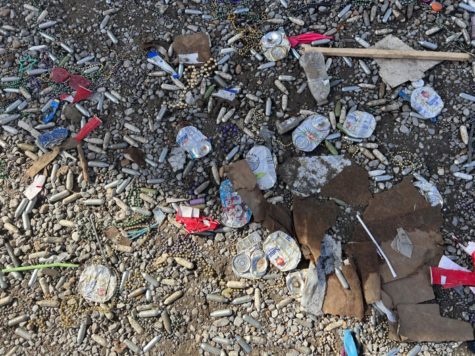Krewe of Iris looks to future with sustainable throws

New Orleans’ Mardi Gras festivities are steeped in tradition and historicity, and for the thousands of visitors that line Saint Charles Avenue, beads are intrinsic to the Carnival experience. But this year was marked by both shorter routes, and, for some krewes, a move to more sustainable throws.
Most notably, the Krewe of Iris moved away from plastic beads, opting for various sustainable items such as soap, toothbrushes and even coffee beans.
The Krewe of Iris teamed up with the non-profit Grounds Krewe. The group was started in 2017 and originally only focused on recycling the waste left on parade routes.
This year, they collaborated with Iris to produce unique and sustainable goods as an alternative to mass-produced plastic beads.
Grounds Krewe set up stations at some parades to hand out bags that allowed attendees to recycle any unwanted throws, drink cans and bottles.
Iris was not the only Krewe that implemented changes this year. The all-female Krewe of Harmonia did not allow any of their members to throw plastic beads.
“We’ve all caught alternative throws over the past couple of years,” said Rien Fertel, a visiting assistant professor in the history department who has taught a class on the history of Mardi Gras. “But I haven’t seen and we will likely not see plastic disappear … from the streets of New Orleans for a very long time.”
“Originally, throws were bestowed to loved ones. A member’s child, or a partner, or wife or whatever. Then gradually, going into the 1900s — into the 20th century, they started throwing beads,” Fertel said.
Those throws, Fertel said, were originally glass beads from Czechoslovakia. The rise of plastic throws began in the 1960s and 70s, when parades like Krewe of Bacchus created larger and brighter floats than ever before.
But even with Iris and Krewe of Harmonia both turning to more sustainable options, the beaded, plastic litter that lines the streets after the floats pass by are unlikely to disappear any time soon.
“Beads might be here to stay unless we find a way to get rid of plastic in our day to day facets of life,” Fertel said. “[We live a] plastic-infused American life.”
Your donation will support the student journalists of Tulane University. Your contribution will allow us to purchase equipment and cover our annual website hosting costs.


